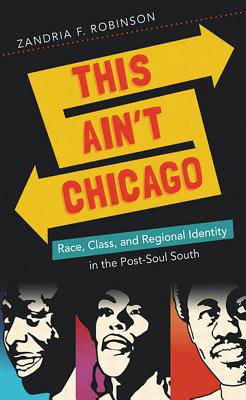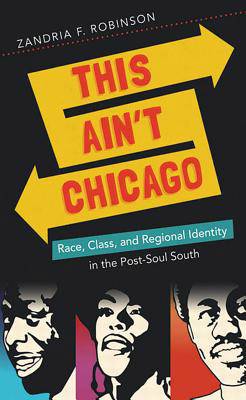
- Afhalen na 1 uur in een winkel met voorraad
- Gratis thuislevering in België vanaf € 30
- Ruim aanbod met 7 miljoen producten
- Afhalen na 1 uur in een winkel met voorraad
- Gratis thuislevering in België vanaf € 30
- Ruim aanbod met 7 miljoen producten
Zoeken
€ 50,45
+ 100 punten
Omschrijving
When Zandria Robinson returned home to interview African Americans in Memphis, she was often greeted with some version of the caution "I hope you know this ain't Chicago." In this important new work, Robinson critiques ideas of black identity constructed through a northern lens and situates African Americans as central shapers of contemporary southern culture. Analytically separating black southerners from their migrating cousins, fictive kin, and white counterparts, Robinson demonstrates how place intersects with race, class, gender, and regional identities and differences.
Robinson grounds her work in Memphis -- the first big city heading north out of the Mississippi Delta. Although Memphis sheds light on much about the South, Robinson does not suggest that the region is monolithic. Instead, she attends to multiple Souths, noting the distinctions between southern places. Memphis, neither Old South nor New South, sits at the intersections of rural and urban, soul and post-soul, and civil rights and post-civil rights, representing an ongoing conversation with the varied incarnations of the South, past and present.
Robinson grounds her work in Memphis -- the first big city heading north out of the Mississippi Delta. Although Memphis sheds light on much about the South, Robinson does not suggest that the region is monolithic. Instead, she attends to multiple Souths, noting the distinctions between southern places. Memphis, neither Old South nor New South, sits at the intersections of rural and urban, soul and post-soul, and civil rights and post-civil rights, representing an ongoing conversation with the varied incarnations of the South, past and present.
Specificaties
Betrokkenen
- Auteur(s):
- Uitgeverij:
Inhoud
- Aantal bladzijden:
- 238
- Taal:
- Engels
- Reeks:
Eigenschappen
- Productcode (EAN):
- 9781469614229
- Verschijningsdatum:
- 15/04/2014
- Uitvoering:
- Paperback
- Formaat:
- Trade paperback (VS)
- Afmetingen:
- 155 mm x 234 mm
- Gewicht:
- 362 g

Alleen bij Standaard Boekhandel
+ 100 punten op je klantenkaart van Standaard Boekhandel
Beoordelingen
We publiceren alleen reviews die voldoen aan de voorwaarden voor reviews. Bekijk onze voorwaarden voor reviews.











